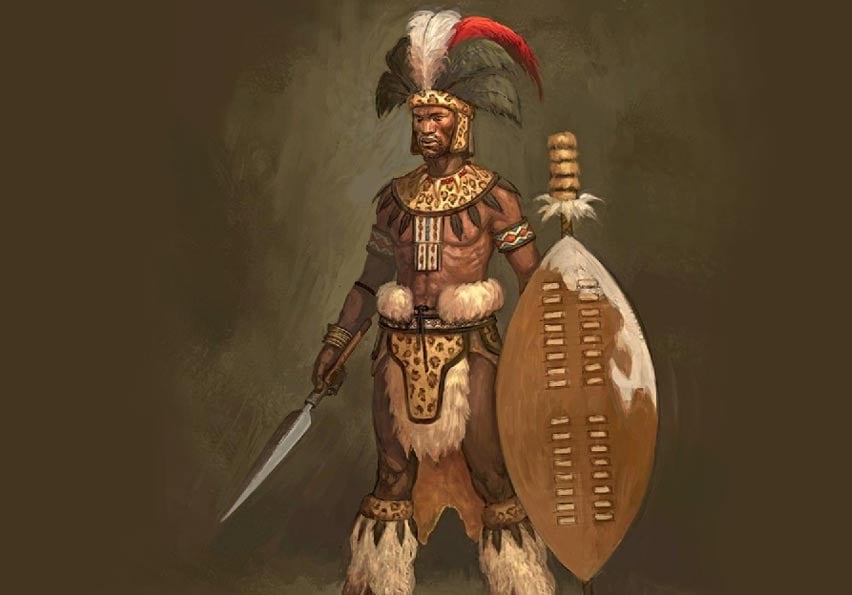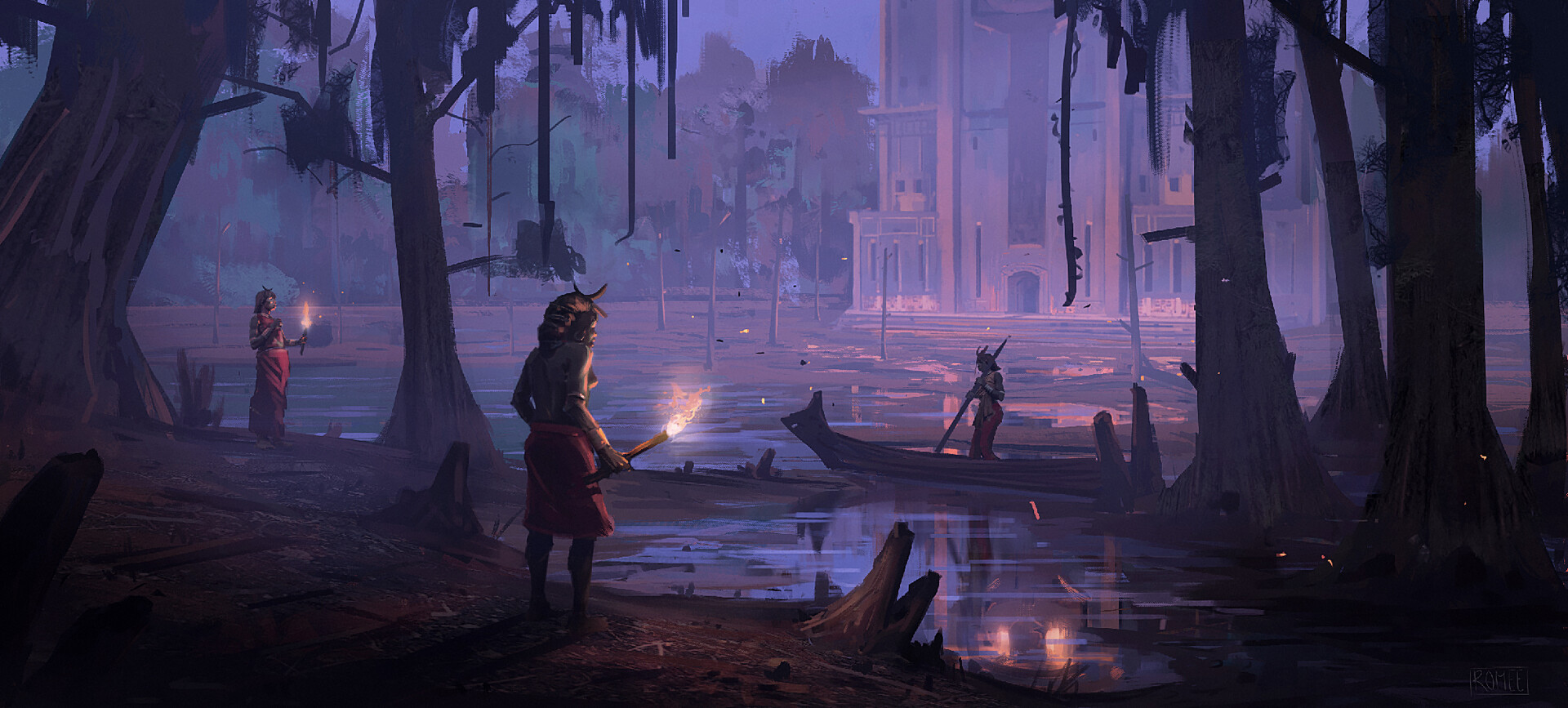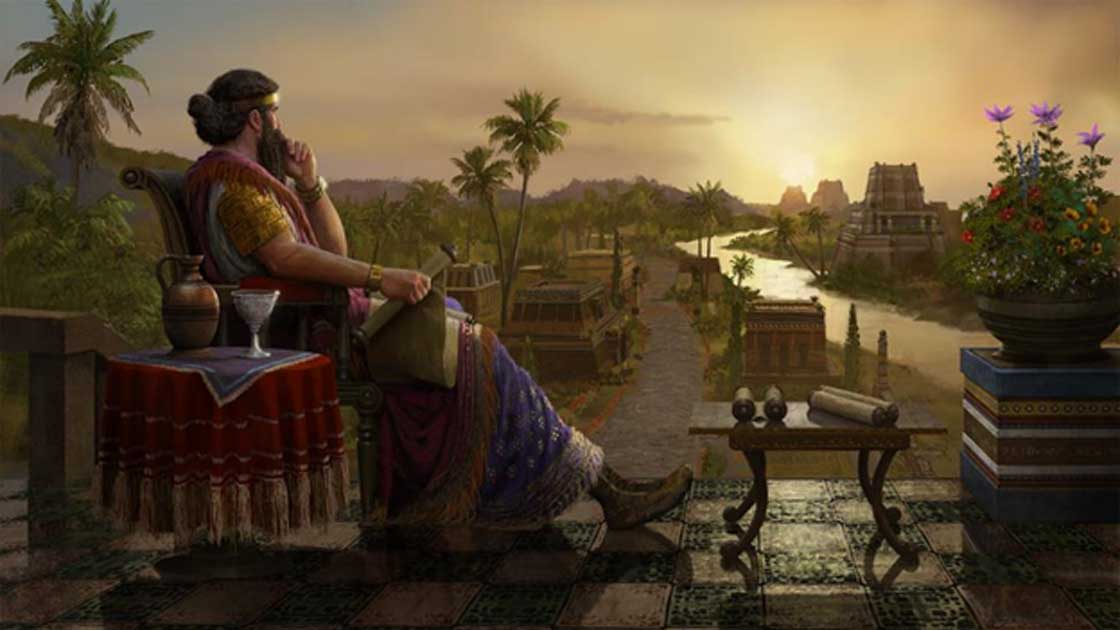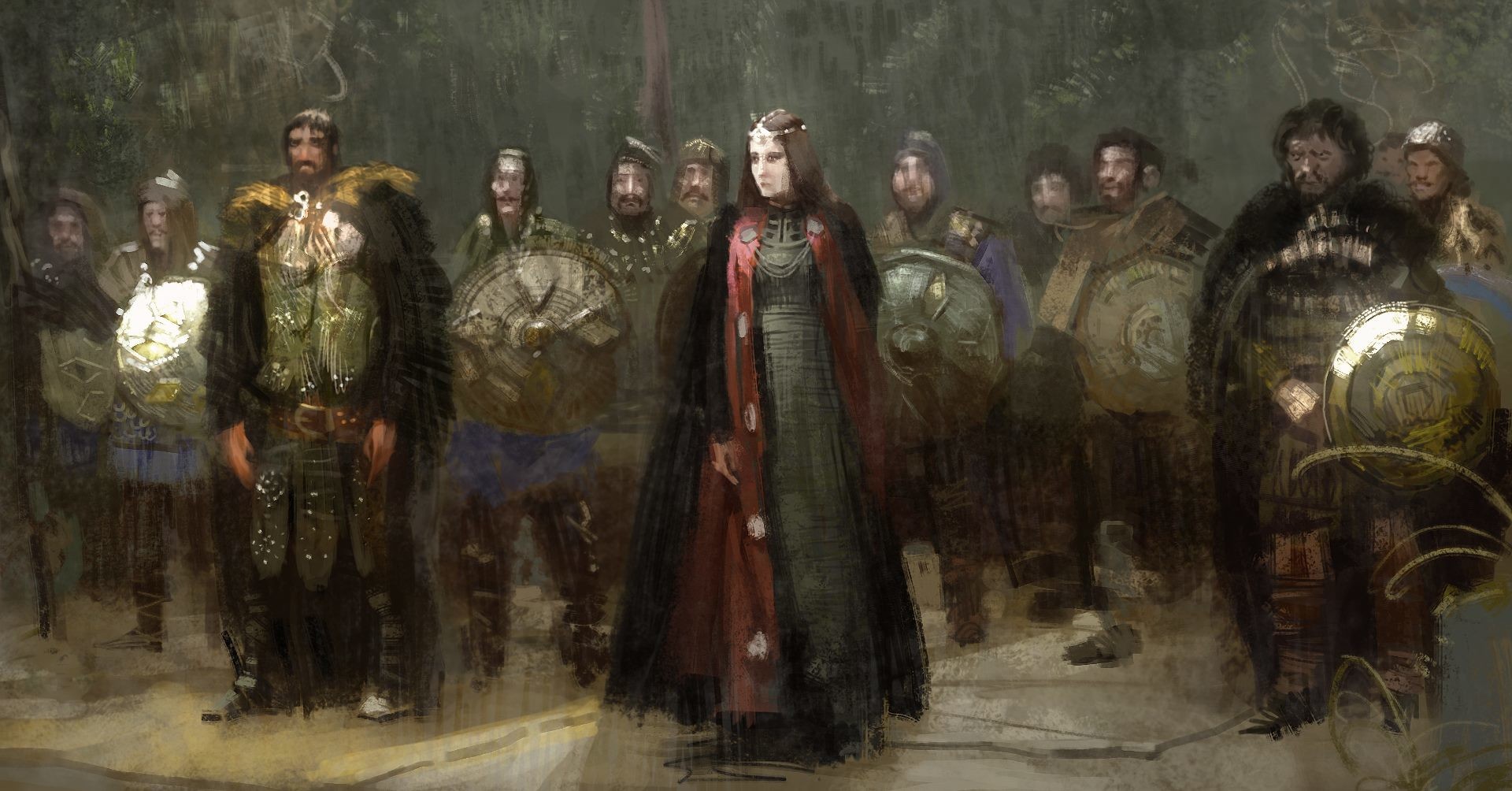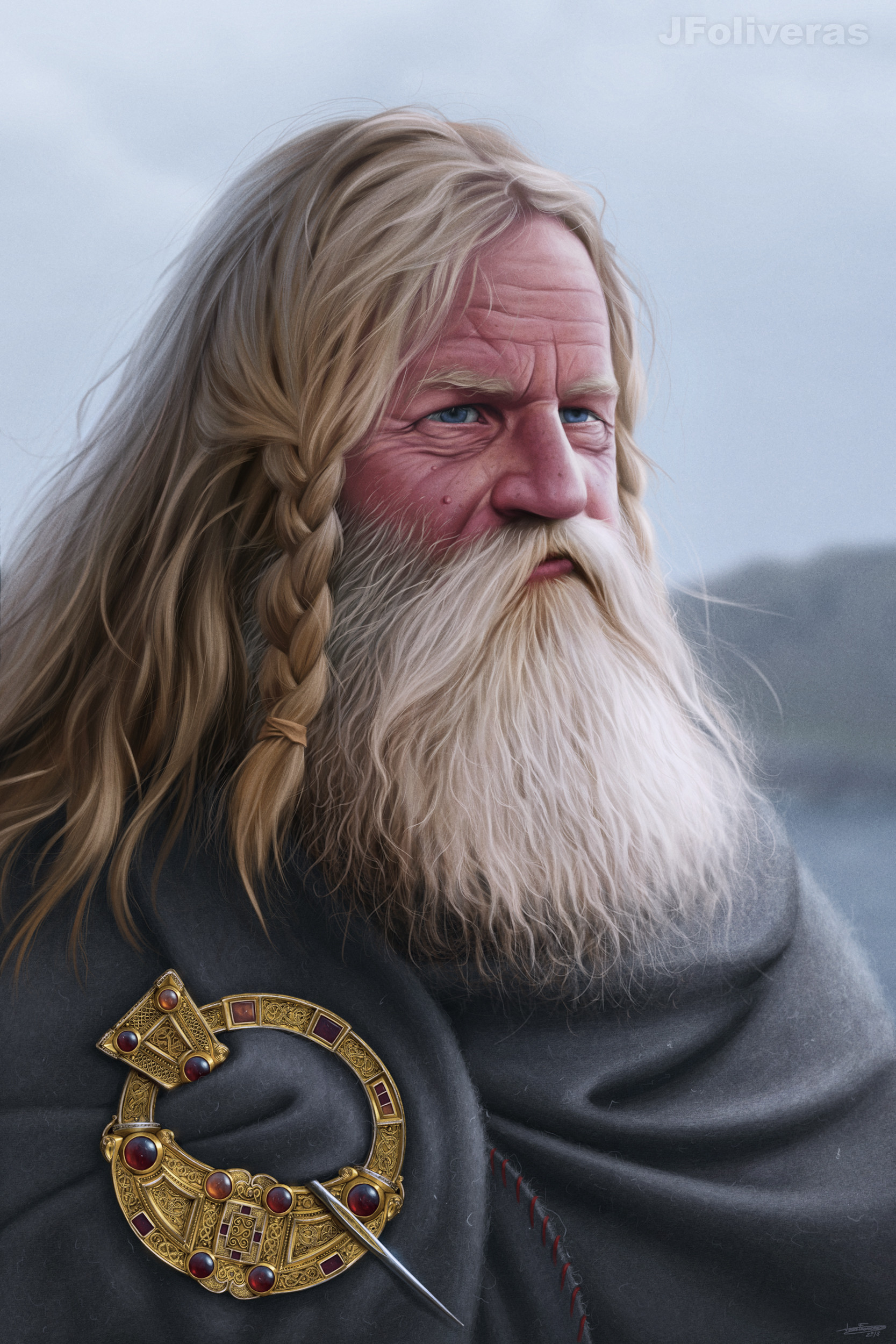
Dark Fantasy ☀ Low Fantasy ☀ Military ☀ History ☀ Drama
Click here to read the Interest Check (including an IC preview!).
Šulmu!
____________________________________________________________________________________________________________________________________________
Welcome to "How Far the Spearsong," the first story in The Devourer Cycle. Proceed and you will enter a world of bronze and gold; of love and betrayal; of dreams, paid for in blood.
Though wide and wondrous be the Known World, this time you play a little people, tucked away in one of its more obscure corners: the Angaturiz, the "sons of the clay," so named for the earth which nourishes their way of life. Of it you craft your houses, your idols, your art. Your ancestors are there, in that sullen soil, with the gods and the spirits who they worshiped for centuries, and who you worship still. Your halls are humble but warm. Your wars are short and small but hideously fierce. Even the tiniest "civilized" empires hasten to call you barbarians, though in the same breath they buy your iron, your strange foods, your pottery, the slaves of your enemies.
Except some are no longer content with buying. Nhir, a city far to the south, has mobilized its fading Empire, thinking your Thraxian Mountains, your tribes, the perfect stone on which to whet its troops, to restore the glamor and glory of reigns past. These royals seem to have tired of giving their silver to savages for goods they already deserve simply for being Nhirians. The Mountains have saved you once before, trapping their armies in with snowfall and rockslides, concealing you from their hateful gaze. But the Nhirians field the most terrifying soldiers in the world; not because of their thick iron hides, or the disciplined rows in which they march, but because when someone has injured their king's pride they return the blow with thrice the fury, and they fight again, they fight until they have extinguished the victory and humiliated the "victors" beyond recovery. Their numbers never end; their resolve never breaks. Or these have never been seen. So does only a slow, agonizing, inevitable doom await the Angaturiz?
Not all have lost hope; not yet. While the eastern tribes lick their wounds, and make their choice—the same choice as faced by every other enemy to the Nhirians—kneel, work, or die—the western tribes, and those already preparing for war from the perilous mountain passes, have all heard the same strange gossip. It tells of a truce between enemies. In pockets all throughout Thraxia the sons of dead men have forgiven their fathers' killers; countless feuds have ended upon a menhir and a wax tablet, instead of a battlefield. Far and wide the tribes have sheathed their weapons, listened to old grudges long and late into the night, packed their mules, and pilgrimmed together to the same place. Skeldefjarn. It is not certain how this was decided as the gathering-place for the first ever Great-Council of Thraxia. It is little more than a field, a menhir on a hill. The villages at its foot are ramshackle, and belong to many tribes of many allegiances, for the land is well-disputed; far from the frontlines, but days away from a defended settlement, too. But perhaps that is precisely why. They will not think to look here. If they do, they will have to fight, or sneak, over hundreds of miles to reach it. For the Thraxians are not theirs yet.
Chieftains, heroes, and petty kings have answered the call, bringing only the finest members of their retinues as accompaniment. Their goal: to put aside their differences, unite under one command, and strike back with such ferocity to ensure that the second assault is the last. But not all differences will be put aside so easily; dozens of cultures and philosophies will clash at this meeting. Not every candidate for high warlord will be content to let another steal his glory. Moreover, the Nhirian Empire is sure to have more up its sleeves than just its hitherto-invincible army.
Can the quarrelsome Angaturiz clans really come together to preserve their freedom, and their way of life, while the age of empires dawns around them? What comes after—if an after awaits them?
This and more, dear players, we will discover together; for even I do not know under whom you will rally your warcry. About whom the bards will write their songs. Which of you will become heroes, even kings and emperors. How your decisions and your actions will irreversibly reroute the flow of this world's legends and history—for good or ill.
What I do know is that this game aims to please the people who like their gritty HBO shows, their three-in-the-morning Wiki-binges also. It is Fantasy, but inspired by history—ancient history in particular—anywhere from ≈800BC to ≈100AD, if you need specifics—and will capture the appropriate moods to the best of its abilities. People's livelihoods here, to quote Hobbes, are "nasty, brutish, and short," whether owing to monsters and forces of fantastical design, or of a more familiar, human aspect. The world is not balanced, fair, or morally pure; the strongest nations and warlords may prove the most depraved, and will not coddle you simply for having posted a sheet in the Characters tab. This is not the game for a team of snarky superheroes saving the day in style. Some of you will perish, some not even gloriously, nor with any dignity or good reason. But if you do survive, and you have both a vision and the will to see it done, then your deeds may just become permanent fixtures of the Devourer lore and world. If this game sees success then there will be sequels, and future players will hear of your exploits, be they wondrous or wicked; just as NPC's, in this and future games, will tell them to their children after dark, and sing of them by the fire. This is your opportunity to roleplay in a truly immersive style; where the setting reacts dynamically to your existence within it. You are a Great Man and the world awaits your orders.
This game will feature several mechanical novelties, unique among RPGuild roleplays. Chiefly these are:
- This game will feature no, or minimal, Greco-Roman influences.
Remember when I said this Fantasy game is heavily history-inspired? Specifically I meant the late-Bronze Age, early-Iron Age societies which often go overlooked in Ancient-tagged RP games. In the case of Devourer this includes (and is not limited to) Scythians and Huns, Parthians and Persians, Franks, Suebi (and other Germanic/Scandinavian proto-peoples), Egyptians, Africans, and even a few New World influences.
Naturally these are not 1:1 translations, as I have brought my own creativity into making these historical peoples fit into a true Fantasy setting (albeit one which feels very much like their own world may have felt). But what this means is simple: when designing your character, and (if it suits you) when giving him a unique and engaging society somewhere on the map, not permitted are any phalanxes, togas, Triumphs, Corinthian helmets and cuirasses, legionary cohorts, etc. Enough of this exists in other games and frankly I find them quite tiring by now. I think you will agree when you have had a taste of what else this blood-and-sand setting can offer.
Naturally these are not 1:1 translations, as I have brought my own creativity into making these historical peoples fit into a true Fantasy setting (albeit one which feels very much like their own world may have felt). But what this means is simple: when designing your character, and (if it suits you) when giving him a unique and engaging society somewhere on the map, not permitted are any phalanxes, togas, Triumphs, Corinthian helmets and cuirasses, legionary cohorts, etc. Enough of this exists in other games and frankly I find them quite tiring by now. I think you will agree when you have had a taste of what else this blood-and-sand setting can offer.
- Magic and monsters work differently here.
Any and all supernatural forces within the Devourer canon are designed, like so many other elements, to reflect the beliefs and understandings of the distant past. This begins and ends with the keystone of ancient society: religion. I will not tell you which gods are real and which are not because no such answer awaits you. Every god exists as long as enough men continue to believe in him. And he is the fount from which all their powers flow.
Only a god can bestow magical favors, and first you must ingratiate yourself to him. Some methods of earning this favor will be more effective than others, depending on his disposition and his place in the pantheon. Conversion of unbelievers and heretics is a surer method than most. Many gods like conquest as it brings glory and recognition to their names while it is done in their honor. Sacrifices, offerings, and rituals, meanwhile, depend on the frequency with which they are given, and also the quality, which means their worth to the practitioner. Burning your enemies' children will not bring you much favor, as they are a sanctimonious gesture; they mean little to you. Meanwhile the man who can burn large stores of food, his finest weapons and horses, even his own family, can bring in far greater boons.
No one knows whether a sacrifice has worked until the crucial moment arrives: the rains which will save your harvests from drought, a decisive victory in the crucial battle, a great misfortune befalling your greatest foe. Because the gods are fickle and because men often misjudge the sacrifices necessary to receive a gift of true salvation. Thus, these important and costly decisions are left almost entirely to the men who are sure to have the gods' undivided attention: priests, kings, prophets. They who can gather flocks a hundred-thousand strong, who speak and are heard by millions, who make men obey and believe, are the most blessed of all, when their works are good. And they alone can guarantee magical favors, if they assume the right costs ...
Magic is a subtle thing here. You cannot see it (no fireballs, glowing sigils, flaming swords, Force Lightning, etc.). But you can feel it. It's in the air when your emperor delivers a rousing speech. It buzzes on the breeze while arrows and javelins fly. It brings the storms, floods, and plagues which can save a nation or ruin it. It is not "power" in the traditional sense, but a force of nature, like luck, or fate, which in effect can be bribed.
Only a god can bestow magical favors, and first you must ingratiate yourself to him. Some methods of earning this favor will be more effective than others, depending on his disposition and his place in the pantheon. Conversion of unbelievers and heretics is a surer method than most. Many gods like conquest as it brings glory and recognition to their names while it is done in their honor. Sacrifices, offerings, and rituals, meanwhile, depend on the frequency with which they are given, and also the quality, which means their worth to the practitioner. Burning your enemies' children will not bring you much favor, as they are a sanctimonious gesture; they mean little to you. Meanwhile the man who can burn large stores of food, his finest weapons and horses, even his own family, can bring in far greater boons.
No one knows whether a sacrifice has worked until the crucial moment arrives: the rains which will save your harvests from drought, a decisive victory in the crucial battle, a great misfortune befalling your greatest foe. Because the gods are fickle and because men often misjudge the sacrifices necessary to receive a gift of true salvation. Thus, these important and costly decisions are left almost entirely to the men who are sure to have the gods' undivided attention: priests, kings, prophets. They who can gather flocks a hundred-thousand strong, who speak and are heard by millions, who make men obey and believe, are the most blessed of all, when their works are good. And they alone can guarantee magical favors, if they assume the right costs ...
Magic is a subtle thing here. You cannot see it (no fireballs, glowing sigils, flaming swords, Force Lightning, etc.). But you can feel it. It's in the air when your emperor delivers a rousing speech. It buzzes on the breeze while arrows and javelins fly. It brings the storms, floods, and plagues which can save a nation or ruin it. It is not "power" in the traditional sense, but a force of nature, like luck, or fate, which in effect can be bribed.
- Collaboration (including joining the Discord channel) is not optional. The game's social system depends on it.
Roleplaying to our greatest potential is a tricky business because it's all too easy to approach the narrative from an emotionally detached perspective; a min-maxing, self-serving sort of angle. "Well, if the tribes need to unite to beat the empire, then let's unite." We will "win" the game then but we will have done so without drama, the essential ingredient to an excellent story. And to join this game is to join me in the ranks of those who want to tell excellent stories. We are not mere hobbyists or colleagues here, but co-authors, all contributing to make the narrative great for everyone involved.
One solution I've devised begins in post-signup. Once everyone has been accepted, each player will be assigned to at least two reputations/relationships with his fellow players: one positive (meaning you like this character), one negative (meaning you dislike him), alluding to histories your characters share from past encounters. (Remember, the tribes are not used to getting along.) Why you like or dislike someone is entirely up to the collaboration between you and your "partner": maybe he killed your brother. Maybe he fled from a battle, causing your side to fall in defeat. Maybe you and he just fundamentally disagree on something. Maybe he just feels wrong from the moment you meet him. Whatever the case, your character enters the great-council with a certain history, and certain prejudices.
Some of these relationships will be mutual. Some won't. Some will cross national or tribal lines while others will betray the trust of those nearest you. The GM will decide according to what seems like it will result in the juiciest drama.
(Please note: these social assignments DO NOT predetermine how your relationships will unfold over the course of the story; merely how they begin! Only you can decide whether your rivals and enemies have succeeded in winning back your trust, and whether your "friends" still deserve your respect and obedience after what they have done over the course of the story.)
If you were not assigned to a certain player then you have never met him before, and your relationship with him is thus a blank slate. Or, alternatively, you can collaborate with him as well, to further complexify your characters' histories. But any relations which the GM does not assign are completely optional.
Please remember the rules and etiquettes for metagaming. Players are not welcome here who will let IC enmities influence their opinions of their fellow players.
One solution I've devised begins in post-signup. Once everyone has been accepted, each player will be assigned to at least two reputations/relationships with his fellow players: one positive (meaning you like this character), one negative (meaning you dislike him), alluding to histories your characters share from past encounters. (Remember, the tribes are not used to getting along.) Why you like or dislike someone is entirely up to the collaboration between you and your "partner": maybe he killed your brother. Maybe he fled from a battle, causing your side to fall in defeat. Maybe you and he just fundamentally disagree on something. Maybe he just feels wrong from the moment you meet him. Whatever the case, your character enters the great-council with a certain history, and certain prejudices.
Some of these relationships will be mutual. Some won't. Some will cross national or tribal lines while others will betray the trust of those nearest you. The GM will decide according to what seems like it will result in the juiciest drama.
(Please note: these social assignments DO NOT predetermine how your relationships will unfold over the course of the story; merely how they begin! Only you can decide whether your rivals and enemies have succeeded in winning back your trust, and whether your "friends" still deserve your respect and obedience after what they have done over the course of the story.)
If you were not assigned to a certain player then you have never met him before, and your relationship with him is thus a blank slate. Or, alternatively, you can collaborate with him as well, to further complexify your characters' histories. But any relations which the GM does not assign are completely optional.
Please remember the rules and etiquettes for metagaming. Players are not welcome here who will let IC enmities influence their opinions of their fellow players.
- All characters will be leadership material, but not all will be leaders.
Furthermore, I am maintaining a certain ratio of characters over the course of this game.
All the important voices at the great-council will come from leaders: chiefs, priests, and petty-kings predominantly. But to ensure that every voice carries a certain degree of rapport, and that player interests will clash in a more satisfying way, at least two retainers will be assigned to each chief. Thus for every PC who is a ruler, two more will be trusted followers, including commanders, confidants, advisors, bodyguards, etc. So for a cast of twelve players I will allow up to four chieftains, for example.
You can collaborate and agree on who gets to be a chief, or the GM can assign you to certain spots as they are needed. Accordingly you should design your character sheets with some degree of fluidity; you are important to your tribe, no doubt, but not necessarily its primary leader. If you are unsure of where you want to be placed, or where you will be needed, then your app can be accepted with this section left blank.
You need not necessarily be from the same tribe as your chief/retainers (foreign sellswords, for example, can be accepted, as long as their chieftains' players have written in good reasons for trusting them). You need not stay in their employ over the course of the story, either. But you will begin the game as a solid, relatively unified micro-faction, and whether you rise to the top together, or kneel to another, or fracture and fall, will be up to the three of you as a team. Help your leader rise to greatness; overthrow him and replace him yourself; or sell your tribe to another. The choice is yours.
All the important voices at the great-council will come from leaders: chiefs, priests, and petty-kings predominantly. But to ensure that every voice carries a certain degree of rapport, and that player interests will clash in a more satisfying way, at least two retainers will be assigned to each chief. Thus for every PC who is a ruler, two more will be trusted followers, including commanders, confidants, advisors, bodyguards, etc. So for a cast of twelve players I will allow up to four chieftains, for example.
You can collaborate and agree on who gets to be a chief, or the GM can assign you to certain spots as they are needed. Accordingly you should design your character sheets with some degree of fluidity; you are important to your tribe, no doubt, but not necessarily its primary leader. If you are unsure of where you want to be placed, or where you will be needed, then your app can be accepted with this section left blank.
You need not necessarily be from the same tribe as your chief/retainers (foreign sellswords, for example, can be accepted, as long as their chieftains' players have written in good reasons for trusting them). You need not stay in their employ over the course of the story, either. But you will begin the game as a solid, relatively unified micro-faction, and whether you rise to the top together, or kneel to another, or fracture and fall, will be up to the three of you as a team. Help your leader rise to greatness; overthrow him and replace him yourself; or sell your tribe to another. The choice is yours.
- Want to get another player "out of the picture"? Here's how.
I've seen enough IC rivalries, wars, and betrayals to know that there are few things in RP more satisfying than a well-timed and genuinely shocking death. I also know nothing has caused more frustration or longer OOC shouting-matches. People grow fond of their characters and will not put them down (a sort of betrayal in itself, if the feelings it elicits are to be believed) without a fight. As such conflicts will be inevitable in this game, the process has been heavily modified both to minimize OOC drama and to make inter-tribal violence a source of mystery and dramatic tension all its own.
To summarize, the player who wishes to organize another character's death will first contact the GM via PM to request a logistical report, containing many factors which will help to plan the assassination. These may include weather and lighting, security, suspicions, routines, etc. When the GM has acknowledged this request the player will then fill out a short application and send it, again, anonymously, to the GM, who will decide whether the attack succeeded or failed based on a number of factors. The app can be perused here: At no point through this OOC process will anyone but the GM, the Contractor, and (if he is a different character) the Operative know that this process is underway, at least until the plan has come to full fruition, or someone has talked IC. In any case players are all but certain in any game to want to defend their characters from an untimely fate, sometimes justifiably, always passionately. These passions can easily result in the wrong types of conflict, the ones which make enemies out of players rather than characters, so this method of crowd control is designed to let a smart, thorough, well-executed plan culminate in its rightful results; and, by contrast, to let the right characters (the ones who were adequately prepared, paranoid, and/or lucky) survive to take their vengeance another day.
To summarize, the player who wishes to organize another character's death will first contact the GM via PM to request a logistical report, containing many factors which will help to plan the assassination. These may include weather and lighting, security, suspicions, routines, etc. When the GM has acknowledged this request the player will then fill out a short application and send it, again, anonymously, to the GM, who will decide whether the attack succeeded or failed based on a number of factors. The app can be perused here:
As for me, I obviously need to be trustworthy with these matters. The first step toward this end is removing any and all personal stakes from my own RP. As a result, although I will be playing a multitude of NPC's, no one character will become a designated DMPC. I will not participate in the politics of the game except as a diverse array of background voices, ones which will not overshadow player agency (unless to respond to overwhelmingly foolish choices). I do hold myself to the Advanced standard of writing, and have over half a decade of GMing experience under my belt. My longest and most successful project lasted three years on the RPing server of a popular MMO. But I am also pushing myself to become even better, so this will be my most ambitious project to date, and I will be accepting and actively seeking out your suggestions throughout: whether for writing, for planning/organizing, or even for a cool story beat you thought up for your character.
𒐼𒈬
Rules
______________________________________________________________________________
With all these warnings and protocols behind us, I can finally say, quite simply, that I hope you look forward to joining and engaging with the Devourer canon as much as I enjoyed writing it. And I look forward to writing with you, too.







